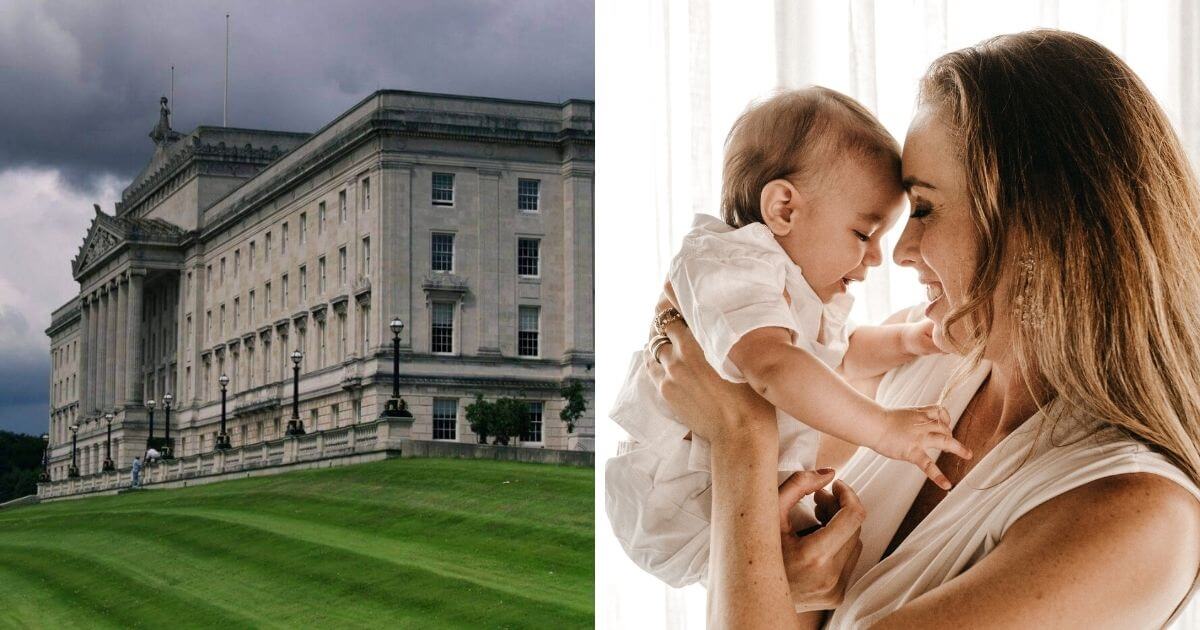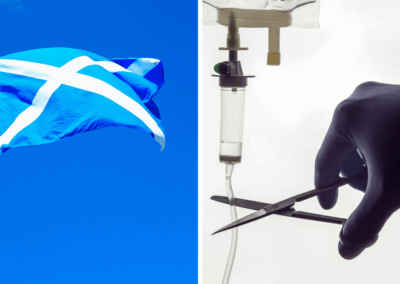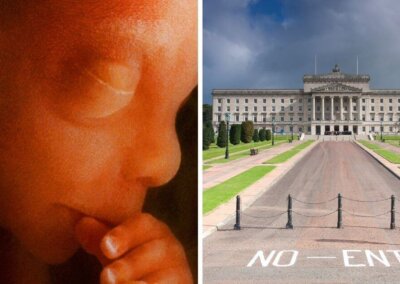A Bill in Northern Ireland, which intends to introduce censorship zones around abortion clinics, is a step closer to becoming law.
Abortion Services (Safe Access Zones) Bill, introduced by Green Party leader Clare Bailey MLA, was debated on Monday before a final stage debate that is expected to take place on 22 March.
The Bill would make it illegal to “influenc[e] a [person seeking an abortion], whether directly or indirectly” within “safe access zones”. This Bill, if it became law, would effectively make it illegal to offer assistance, advice or peacefully pray in “safe access zones” outside abortion clinics and hospitals offering abortions in Northern Ireland.
The Bill has been opposed by Members of the Legislative Assembly, including the Democratic Unionist Party and Traditional Unionist Voice leader Jim Allister.
On Monday, Mr Allister said that the Bill would be “absolutist” and would “rob any accused person… of that most fundamental right to say, “But what I did was reasonable”, and for the court to decide whether it was reasonable”.
In a previous debate, Mr Allister pointed out that legislation already exists to prosecute harassment saying: “Under legislation that presently exists… harassment is already a criminal offence, and under the Public Order Order 1987, disorderliness and all that goes with it is already a criminal offence”.
The sponsor of the Bill, Ms Bailey, who previously worked with a Marie Stopes abortion clinic, said that the Bill was “urgently needed”.
DUP MLA Pam Cameron said that legal concerns remain “unaddressed” and warned that the Bill “will almost certainly result in protracted legal action”.
Only 13 out of 6,412 responses support Bill
A public consultation on the Bill released in January found that only 13 out of 6,412 responses to the consultation from members of the public in Northern Ireland, supported the Bill. The report states:
“Of the 6,412 submissions from individuals, the overwhelming majority stated their opposition to the Bill, with only thirteen submissions from individuals affirming their support”.
This means that there was only 0.2% support for the Bill among the general public who made submissions to the consultation.
In 2018, then UK Home Secretary, Sajid Javid, when rejecting calls to introduce censorship zones outside abortion clinics in England, said: “introducing national buffer zones would not be a proportionate response”.
“The main activities reported to us that take place during protests include praying, displaying banners and handing out leaflets. There were relatively few reports of the more aggressive activities”.
Right To Life UK spokesperson, Catherine Robinson, said: “Just two years ago in Northern Ireland, unborn children effectively had the same basic protections in the law as everybody else did. Now it could soon be illegal to offer a woman help or an alternative to abortion outside an abortion clinic”.
“As has been pointed out numerous times, legislation to prevent harassment already exists. When harassment occurs, it should be investigated and punished under the law. What this Bill does is target a specific viewpoint and censors freedom of expression and offers of assistance”.
“There are numerous accounts from women who sought an abortion, were offered help outside of abortion clinics and accepted that help. If this Bill in Northern Ireland is successful, it will be illegal to offer such women that help, even if they want it”.












